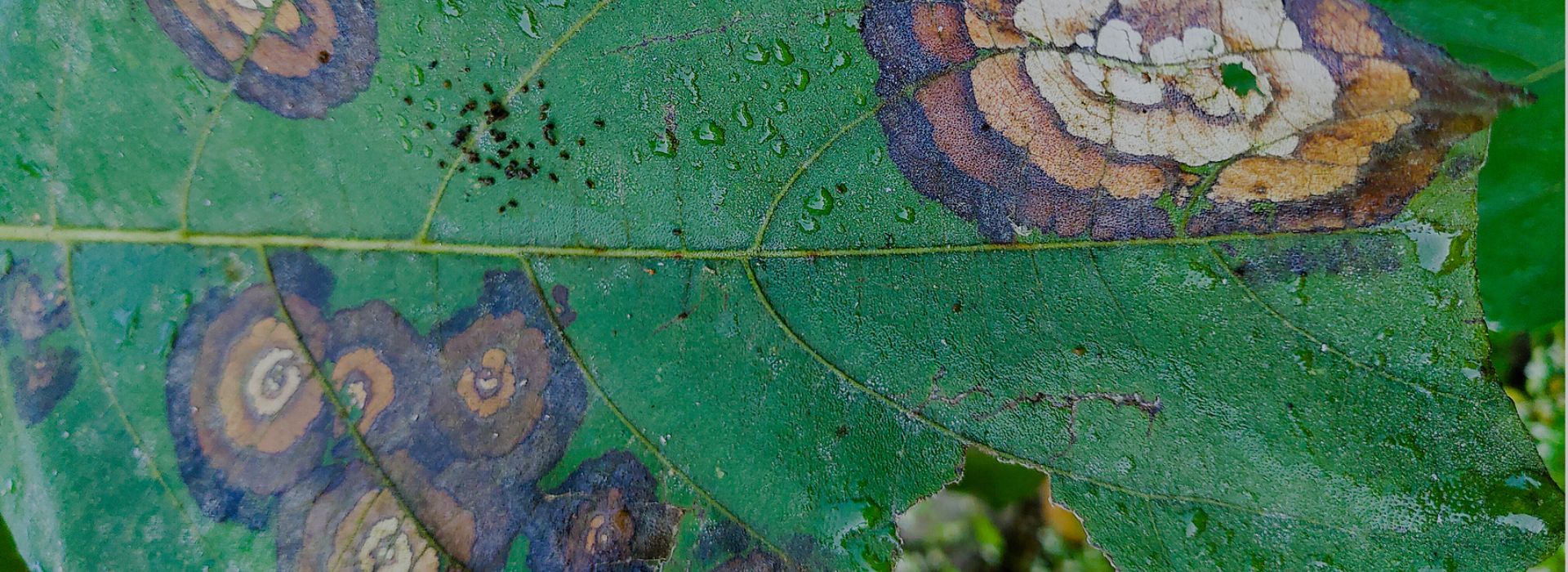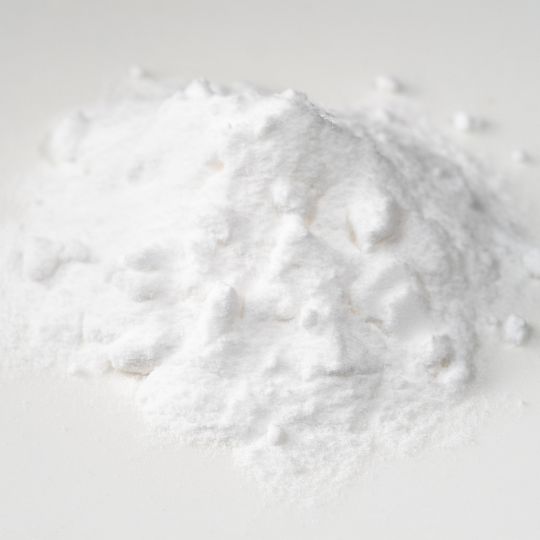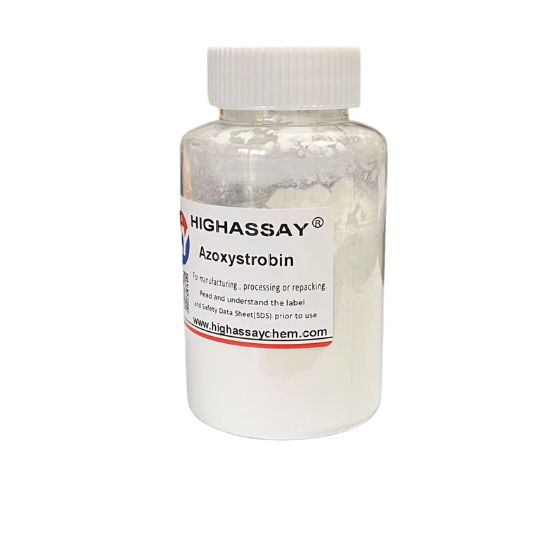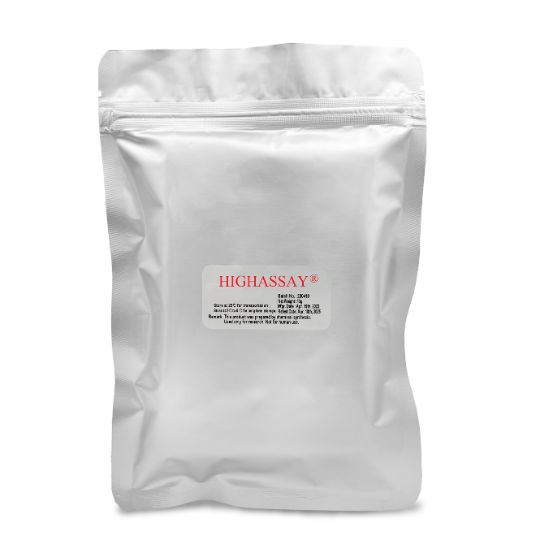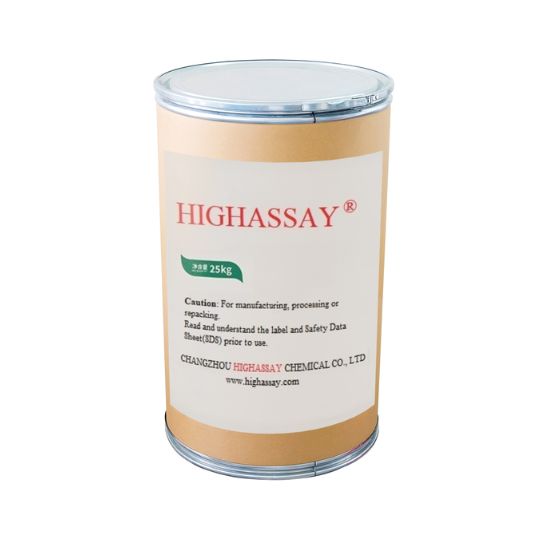A Brief Introduction to Azoxystrobin
Molecular formula: C22H17N3O5
Molecular weight: 403.39
CAS No.: 131860-33-8
Appearance: White to off-white powder and liquid
Regular commercial package: 25kg/drum
What is Azoxystrobin?
Azoxystrobin is a methoxyacrylate insecticide. It can be used as a foliar spray, seed treatment, or soil treatment for crop fungi, and is effective against nearly all fungal diseases. Azoxystrobin is currently one of the most popular and best-selling fungicides. Launched in Germany in 1997, it continues to be used to control over 400 plant diseases. The variety of products using Azoxystrobin as an ingredient is increasing, and its application is also expanding.

Why choose Highassay?
Highassay offers two forms of Azoxystrobin: a 95% pure white solid powder and a 25% concentrated suspension. Choose the appropriate form based on your product. We also provide you with the MSDS (Material Safety Data Sheet) for the azoxystrobin raw material. We recommend that you follow the MSDS for proper handling to avoid safety incidents.
If you have any questions about processing Azoxystrobin, Highassay’s R&D team is here to help.
Applications of Azoxystrobin
Highassay adheres to strict quality control (QC) to produce Azoxystrobin. Buy Azoxystrobin in bulk from us now to get competitive market prices.

Azoxystrobin can be used on ornamental plants in lawns and gardens to treat leaf spot, downy mildew, and brown spot.
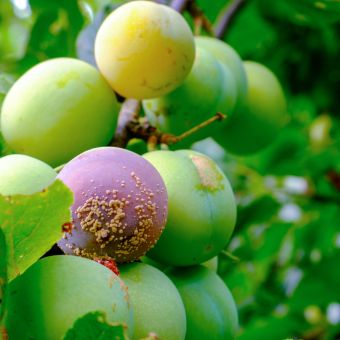
Azoxystrobin can be used on vegetables and fruit trees to treat anthrax, powdery mildew, and scab.
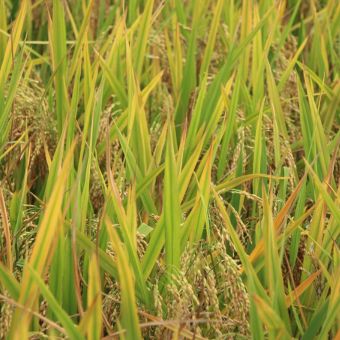
Azoxystrobin can be used on cereals and grains to treat fusarium head blight, gray mold, and rice blast.

Azoxystrobin can be used in homes, such as in mildew-resistant wallboard. It improves the wallboard’s mildew resistance and extends its lifespan.
How to Use Azoxystrobin
- Azoxystrobin alone can combat almost all fungal diseases. Combining it with other ingredients can improve its effectiveness, achieving a multi-pronged approach.
- A spray, prepared by mixing the ingredients in appropriate proportions, is the most common method used by growers to address foliar problems. It’s also the fastest method of application, especially for large crop areas. Using an automatic sprayer offers even greater efficiency.
- A solution or solid particles can be prepared for treating seeds, seedlings, or soil. Due to its high permeability, it can be absorbed by crops and provide a preventive and control effect.
- For specific wounds or localized diseases, a high-concentration spray can be applied. This not only protects other beneficial organisms but also reduces the amount of pesticide used and reduces environmental pollution.

Specifition of Azoxystrobin
- Specifition of Azoxystrobin
| Product Name | Azoxystrobin |
| Chemical name | Methyl(2E)-2-(2-{[6-(2-cyanophenoxy)pyrimidin-4-yl]oxy}phenyl)-3-methoxyacrylate |
| Melting point | 118℃-119℃ |
| Boiling point | 581.3℃ |
| Water soluble | Low solubility in water |
| Density | 1.33g/cm³ |
| Flash point | 305.3℃ |
| Storage | Sealed tightly and stored away from light in a cool and dry place |
| Formulations | 95% Tech, 25% SC |
| Package | 25kgs fiber drum. 200L drum and various bottles. |
It depends on how you use it and your dosage.It is recommended that you use the product in accordance with the instructions, take protective measures and avoid direct contact.
The sterilization principles of the two are different, but the effects are similar. You can choose according to your needs.
You can see obvious results within a week, and this prevention and treatment effect can last for about a month.
Additional Information About Azoxystrobin
- Azoxystrobin is unique in that it not only suppresses diseases but also delays crop aging and improves crop quality. This has earned it the favor of the vast majority of growers.
- Azoxystrobin has a shelf life of approximately one month. Due to its long-lasting properties, frequent application is unnecessary.
- Azoxystrobin’s excellent compatibility and effectiveness have established it as a leading fungicide. According to incomplete statistics, over 500 azoxystrobin single-agent and mixed formulations have been registered. You can also combine it with other ingredients based on the type of crop disease, addressing crop problems simultaneously without side effects and improving efficiency.
- Although azoxystrobin is a low-toxic and safe fungicide, it is not safe for bees, fish, and other organisms. Therefore, avoid applying during crop flowering and away from beekeeping areas and waterways to prevent unnecessary damage.
- It is not suitable for Apples and Cherries.

